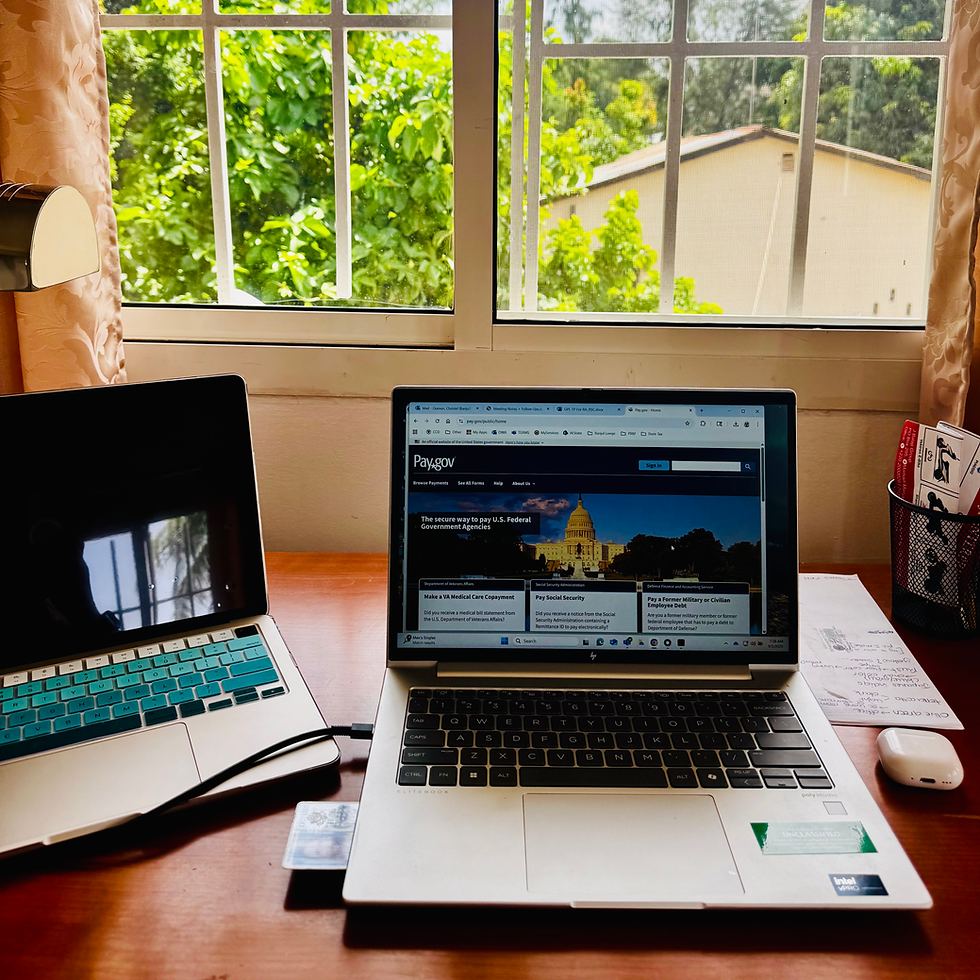Reliving the nightmare: testing new FSOA materials
- Owner

- Nov 16, 2019
- 3 min read
Updated: Jan 7, 2020
This week I did something pretty interesting: I was part of a small group of diplomats testing out new materials for the Foreign Service Oral Assessment (FSOA). The Board of Examiners (BEX) frequently updates materials to keep the entry exam fair--even though test takers are not allowed to share the content of the materials, it's never guaranteed that people aren't sharing it anyway.

Don't get too excited though: I can't talk about the content of the material I tested on this blog, because that would be a gross violation of the non-disclosure assignment (NDA) I signed and undermine the integrity of the testing process.
Reliving the Nightmare
When I told other diplomats I signed up to be part of the test group, I think they thought I was crazy. Most people found the FSOA a terrifying experience and have no desire to relive it whatsoever. I guess I'm kinda special that way--I find it endlessly fascinating to think about how a small group of people can be selected from such a vast candidate pool (up to 20,000 Americans take the FSOT, which is the first step of the recruitment process, every year).
One great thing, perhaps my favorite thing, about the FSOA is that you can't really study for it. It's not a test to see who crammed the most information into their heads, or who have the best quantitative skills. You can be Einstein and fail the test. Instead, the test is designed to find people who have a variety of skills that live up to a certain standard. In a sense, it's not even competitive. On any given test day, every single test taker can pass the test--as long as they score enough points during the various exercises.
When you're a candidate, you don't have to give up your life and devote yourself to studying specific materials or learning a bunch of tricks to impress BEX. Nor does it matter where you went to school, how old you are, or who you know--or anything else that immediately advantages one group of persons over another.
Still, I think taking the FSOA is nerve-wrecking for just about anyone who takes it. There's around a 40-50% chance of passing, which makes it really high stakes. Also, BEX observes you like a zoo animal, which makes you feel self-conscious about everything you say or do, or fail to say or do, during the test (which takes an entire day!).
Gold Standard
It's not just me, by the way, that thinks the FSOA is a good recruitment tool. The FSOA has an excellent reputation. For decades, it's been doing a great job filtering an enormous applicant pool and finding people who are the best fit for the Foreign Service. In fact, the long process that the State Department uses to screen and test applicants has been called the "gold standard" in professional recruitment.
For a comprehensive overview of what it entails check out Examining State’s Foreign Service Officer Hiring Today.
So, what's new?
What else can I say... I guess it's okay to mention that I tested new "case management" material. The FSOA consists of three parts: case management, structured interview, and group assessment. The case management is the only written exercise and reportedly the hardest to pass.
There was nothing particularly new or mind-blowing about the scenario I tested. The idea was simply to let us do it, acting as if we were really taking the oral assessment, and taking notes in case we found anything wrong or confusing about it. I didn't find much that threw me off--just a couple of details that I duly reported afterwards.
I couldn't help wondering if I would I pass the FS exam again, if I had to re-take it. On the one hand, I'm confident that I have what it takes. I only did it once and it went well. In fact, it went so well that it made me believe, once and for all, that I'm a great fit for the Foreign Service. On the other hand: it would be hard to get motivated all over again to prove myself that way--it's exhausting!







